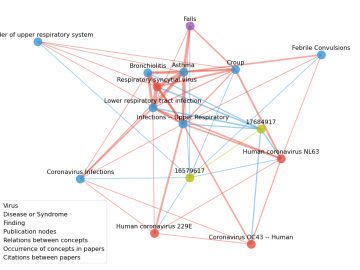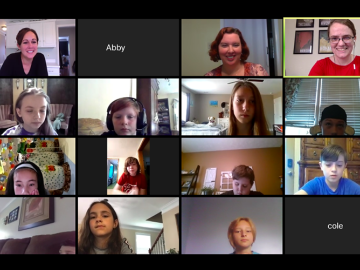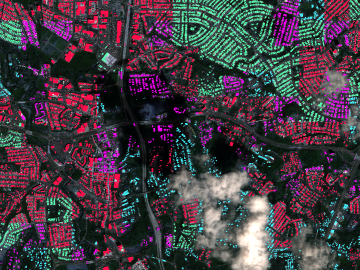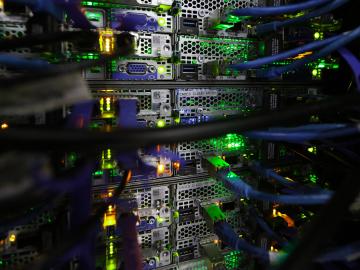
Filter News
Area of Research
- (-) National Security (19)
- (-) Supercomputing (50)
- Advanced Manufacturing (6)
- Biological Systems (1)
- Biology and Environment (29)
- Computational Biology (2)
- Computational Engineering (1)
- Computer Science (6)
- Electricity and Smart Grid (3)
- Energy Science (96)
- Functional Materials for Energy (1)
- Fusion and Fission (25)
- Fusion Energy (9)
- Isotopes (10)
- Materials (78)
- Materials Characterization (1)
- Materials for Computing (16)
- Materials Under Extremes (1)
- Neutron Science (89)
- Nuclear Science and Technology (34)
- Nuclear Systems Modeling, Simulation and Validation (1)
- Quantum information Science (1)
- Sensors and Controls (1)
- Transportation Systems (2)
News Type
News Topics
- (-) Big Data (24)
- (-) Biomedical (12)
- (-) Grid (7)
- (-) Materials Science (13)
- (-) Molten Salt (1)
- (-) Neutron Science (9)
- (-) Nuclear Energy (6)
- (-) Transportation (6)
- 3-D Printing/Advanced Manufacturing (5)
- Advanced Reactors (2)
- Artificial Intelligence (30)
- Bioenergy (6)
- Biology (11)
- Biotechnology (2)
- Buildings (3)
- Chemical Sciences (3)
- Computer Science (74)
- Coronavirus (12)
- Critical Materials (3)
- Cybersecurity (13)
- Energy Storage (6)
- Environment (22)
- Exascale Computing (19)
- Frontier (21)
- Fusion (2)
- High-Performance Computing (36)
- Isotopes (2)
- Machine Learning (17)
- Materials (11)
- Mathematics (2)
- Microscopy (3)
- Nanotechnology (8)
- National Security (28)
- Partnerships (2)
- Physics (6)
- Polymers (2)
- Quantum Computing (16)
- Quantum Science (16)
- Security (10)
- Simulation (15)
- Software (1)
- Space Exploration (3)
- Summit (29)
Media Contacts

Research by an international team led by Duke University and the Department of Energy’s Oak Ridge National Laboratory scientists could speed the way to safer rechargeable batteries for consumer electronics such as laptops and cellphones.

Scientists have tapped the immense power of the Summit supercomputer at Oak Ridge National Laboratory to comb through millions of medical journal articles to identify potential vaccines, drugs and effective measures that could suppress or stop the

With Tennessee schools online for the rest of the school year, researchers at ORNL are making remote learning more engaging by “Zooming” into virtual classrooms to tell students about their science and their work at a national laboratory.

In the race to identify solutions to the COVID-19 pandemic, researchers at the Department of Energy’s Oak Ridge National Laboratory are joining the fight by applying expertise in computational science, advanced manufacturing, data science and neutron science.

We have a data problem. Humanity is now generating more data than it can handle; more sensors, smartphones, and devices of all types are coming online every day and contributing to the ever-growing global dataset.

As the second-leading cause of death in the United States, cancer is a public health crisis that afflicts nearly one in two people during their lifetime.

A novel approach developed by scientists at ORNL can scan massive datasets of large-scale satellite images to more accurately map infrastructure – such as buildings and roads – in hours versus days.

Oak Ridge National Laboratory will partner with Cincinnati Children’s Hospital Medical Center to explore ways to deploy expertise in health data science that could more quickly identify patients’ mental health risk factors and aid in

Scientists at have experimentally demonstrated a novel cryogenic, or low temperature, memory cell circuit design based on coupled arrays of Josephson junctions, a technology that may be faster and more energy efficient than existing memory devices.

To better determine the potential energy cost savings among connected homes, researchers at Oak Ridge National Laboratory developed a computer simulation to more accurately compare energy use on similar weather days.


